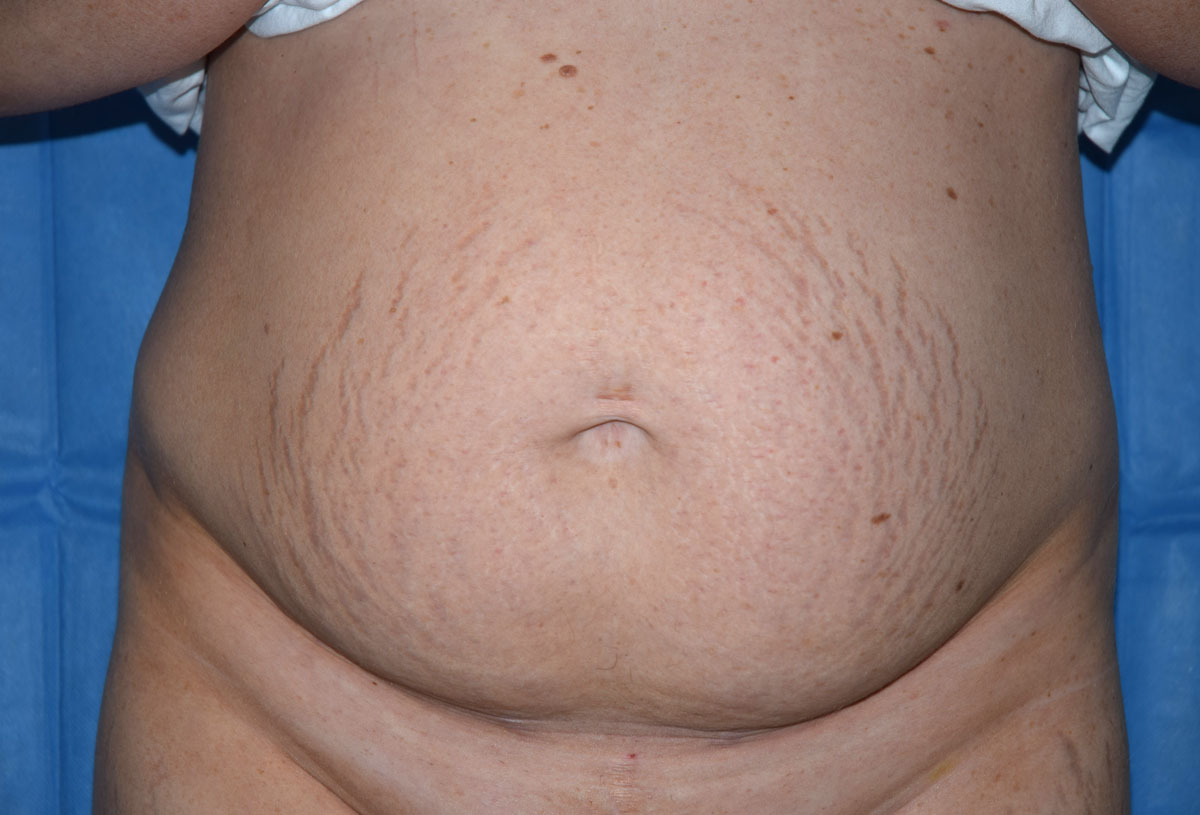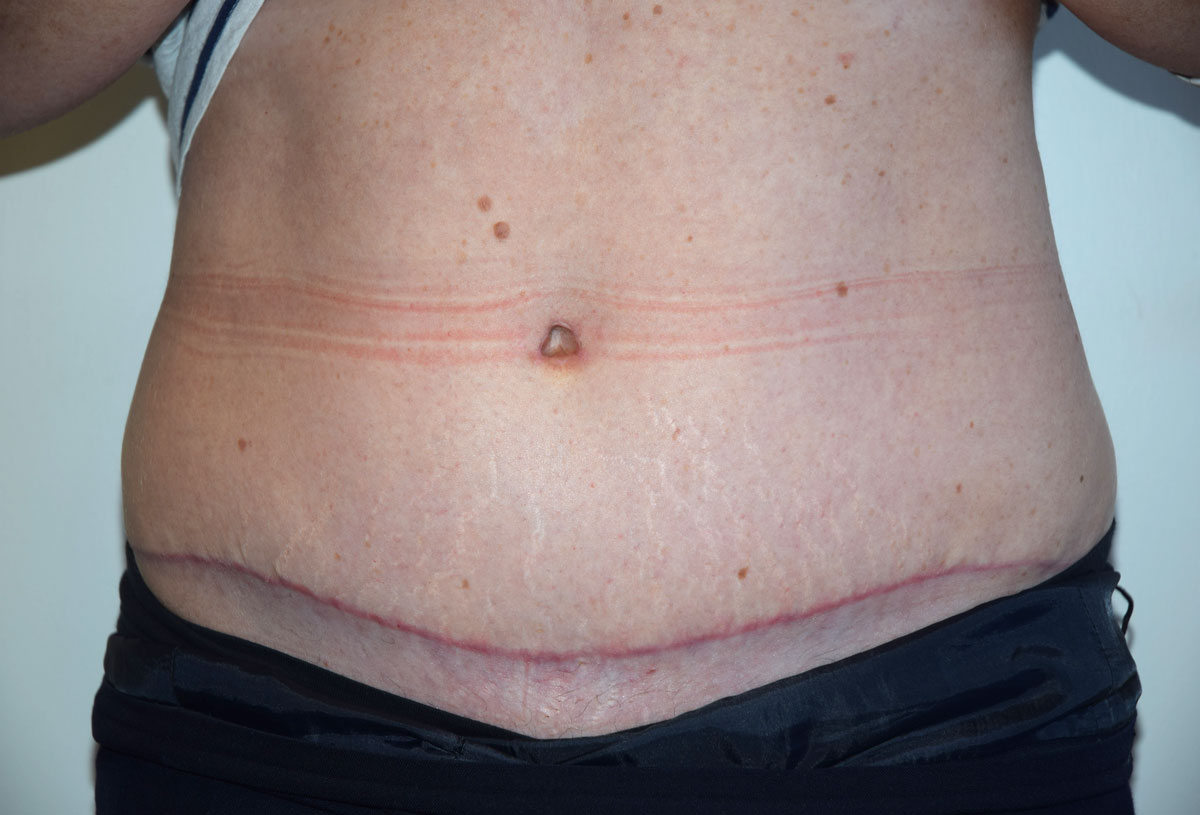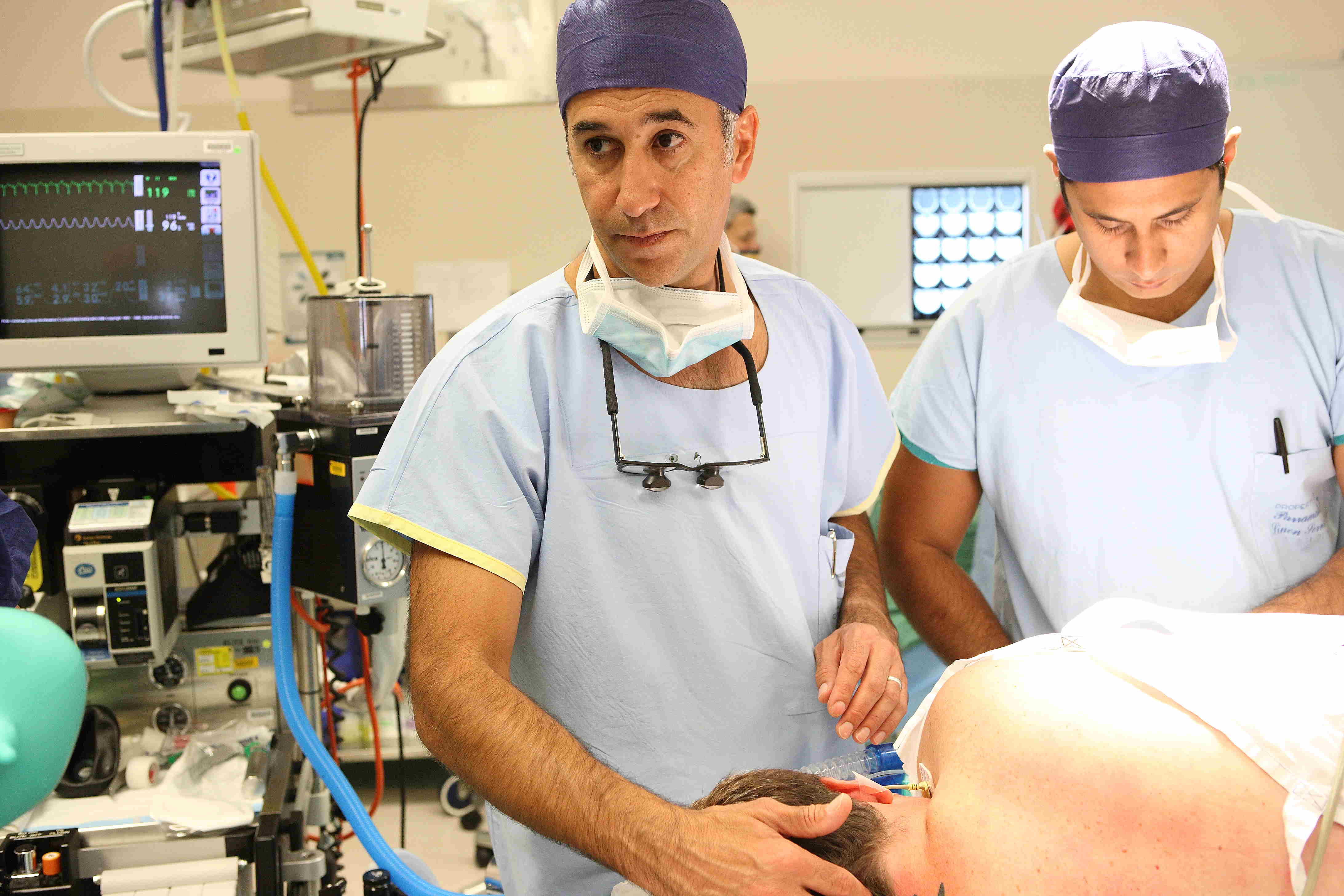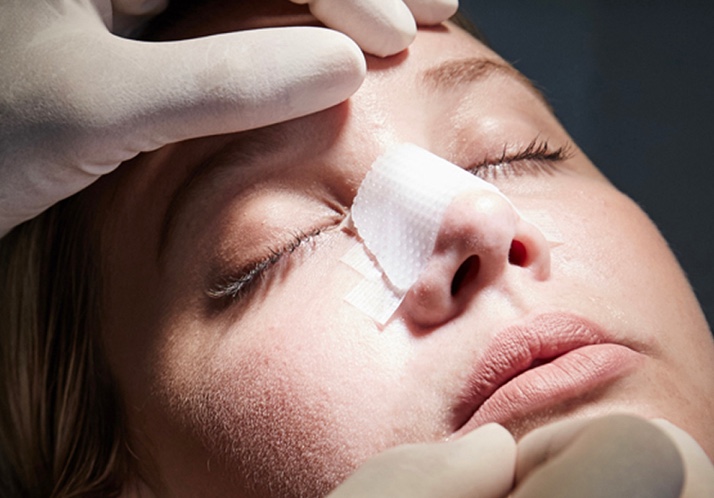Tummy Tuck
Abdominoplasty, or tummy tuck, is a surgical procedure designed to reduce both skin and fat excess in the lower abdomen. It improves the abdominal contour. Very often, women in particular after childbirth, have areas of excess that are resistant to all forms of exercise and muscle strengthening. Abdominoplasty addresses this problem well.
The procedure involves a long incision from hip to hip and above the pubic region. Through this incision, the tissues are elevated to the level of the rib cage. The abdominal muscles, which are very often separated as a result of pregnancies, are then reapproximated with sutures. The excess skin and tissue are then removed before the umbilicus is repositioned and the operation is closed with dissolving sutures placed underneath the skin. Liposuction is often used in conjunction with this procedure.
On occasion a lesser procedure or mini abdominoplasty is appropriate. Where there is relatively less tissue excess, an improved contour is possible via a shorter scar, a little like a caesarian scar. Most often, liposuction is used in addition.
Abdominoplasty is often a useful adjunct to other surgical procedures following massive weight loss.
You may have saggy skin, excessive fatty tissue which you just can’t shift, bulging of your abdomen, irritation of skin beneath your abdominal fold – these can all occur with pregnancy and childbirth, with weight loss or gain, or simply over time. A tummy tuck can address these and may be a consideration for you.
A tummy tuck can also improve your lower back pain and discomfort and may also improve urinary incontinence where there is significant muscle separation.
A/Prof Gianoutsos performs abdominopalsty surgery under general anaesthesia. Your anaesthetic will be done by one of the expert and experienced specialist anaesthetists with whom A/Prof Gianoutsos works on a regular basis. You will generally stay in hospital for between 3 and 5 nights following your operation.
There are a number of types of tummy tuck procedure and the procedure which is right for you will be discussed in detail at your personalised consultation with A/Prof Gianoutsos.
Procedures can include liposuction, mini abdominoplasty, full or extended abdominoplasty.
Following surgery, drains are usually placed and the incisions are closed using absorbable sutures. You will be placed into a surgical binder. Whilst in hospital, you will be encouraged to get out of bed and mobilise early on – this is much better for your recovery.
You will usually be in hospital for between 3 and 5 nights following your procedure.
If A/Prof Gianoutsos is doing a mini abdominoplasty or liposuction alone these may be done as day only procedures.
After discharge you will be seen at A/Prof Gianoutsos’ rooms at around a week to remove your dressings and place surgical tapes on the incision lines. You will generally be seen again the following week for a check up. You will then be reviewed at around 6 weeks and then six and twelve months.
A/Prof Gianoutsos and his staff are available at any time, however, should you have any queries or concerns.
A/Prof Gianoutsos generally recommends three weeks off work following your abdominoplasty surgery. At this point you will still have some swelling and sometimes some bruising but you will be comfortable to do normal day to day activities. Vigorous exercise should be avoided for around 6 weeks.
Your tummy will initially feel tight and you may even be a little stooped in walking for a few days. Your swelling will resolve over around 6 weeks at which point your final result will be seen although subtle changes can occur over a longer period.
All surgery carries at least some degree of risk. These are minimized by ensuring you are as healthy as possible and prepared for the operation, by selecting a properly qualified and experienced surgeon and allowing yourself a proper recovery period. The particular risks as well as the expected perioperative course will be discussed in detail with you at your consultation and you will have the opportunity to ask any questions.



Our Procedures
Our philosophy is to treat all patients as we would be expected to be treated ourselves.
A/Prof. Mark Gianoutsos



